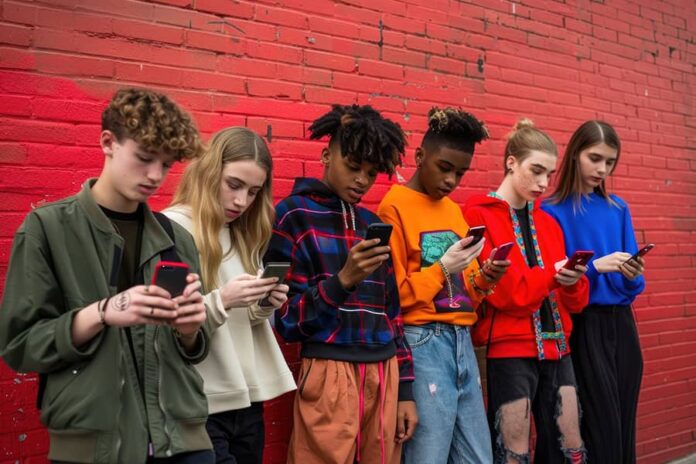A recent report from the National Center for Health Statistics reveals that teens who spend four or more hours on screens each day are at a higher risk of facing anxiety and depression. According to the agency’s brief shared on Wednesday, nearly half of adolescents aged 12 to 17 reported having four or more hours of screen time daily between July 2021 and December 2023. The breakdown shows that about 22.8% had three hours, 17.8% had two hours, while only a small fraction—6.1%—logged one hour or less, and just 3% spent less than an hour on screens.
The teenagers self-reported their screen time during a typical weekday, excluding any schoolwork-related use. Alarmingly, about one in four teens with four or more hours of daily screen time experienced symptoms of anxiety (27.1%) or depression (25.9%) in the two weeks prior to the survey. In contrast, those who limited their screen time to under four hours reported significantly lower rates of these issues—12.3% for anxiety and 9.5% for depression.
Dr. Neha Chaudhary, a psychiatrist at Massachusetts General Hospital and Harvard Medical School as well as Chief Medical Officer at Modern Health, commented to CBS News about the findings: This kind of research really highlights how much time kids are spending on screens and the concerning effects this has on their mental health. She noted that she’s seen firsthand how technology impacts stress levels and mental health in both children and parents she’s treated.
While there’s increasing evidence linking social media use with anxiety and depression, Dr. Chaudhary points out that the reasons behind this connection are quite complex: Factors like online bullying, constant comparisons with others’ lives, seeking validation through likes or comments, and issues related to body image contribute significantly. She also mentioned that those struggling with mental health may turn to social media for comfort or distraction in hopes of finding connection.
Organizations like the American Academy of Pediatrics advise teens to be mindful about their daily screen use but acknowledge that not all screen time is harmful; some can foster social connections or creativity. Dr. Chaudhary describes technology as a double-edged sword for our generation: Some individuals find supportive communities online that uplift them; however, many others end up feeling worse.
Interestingly, while boys and girls reported similar amounts of screen time in this latest study, black teens and those living in urban areas were more likely to exceed four hours each day.

